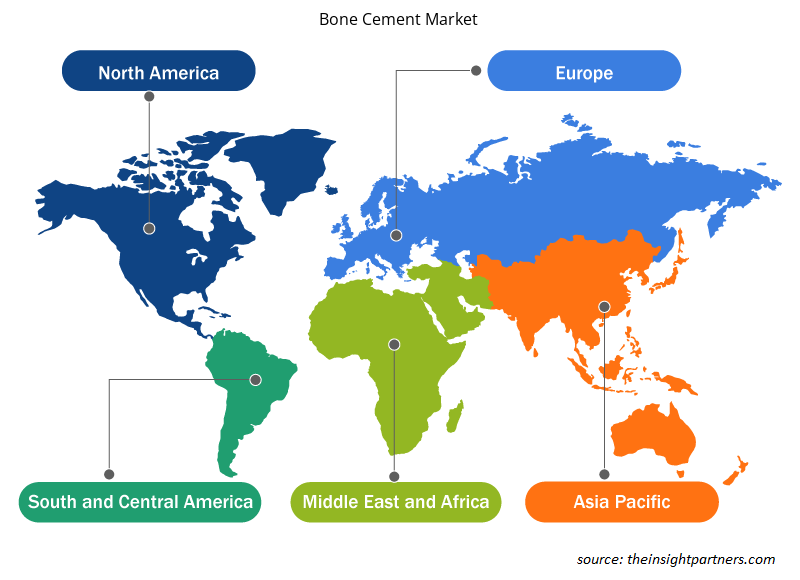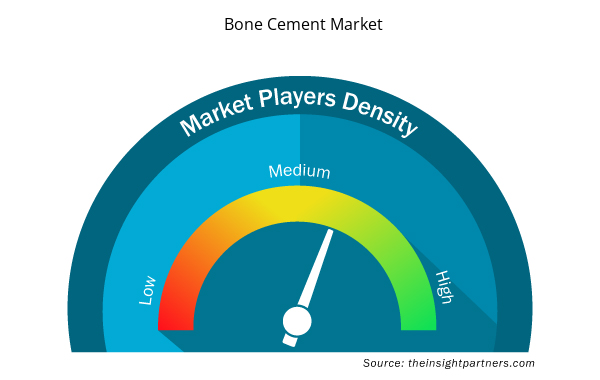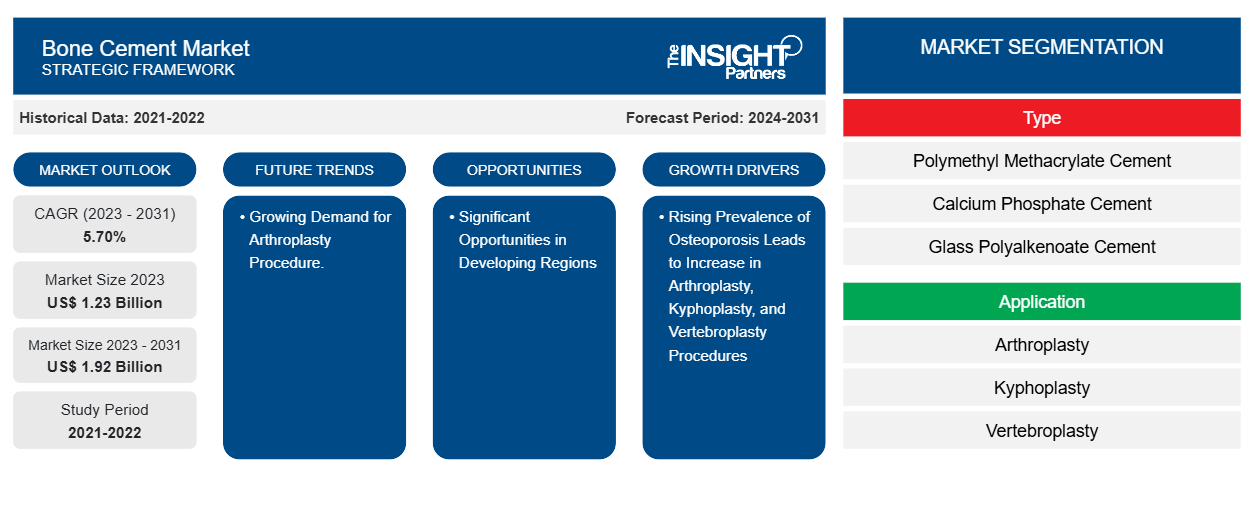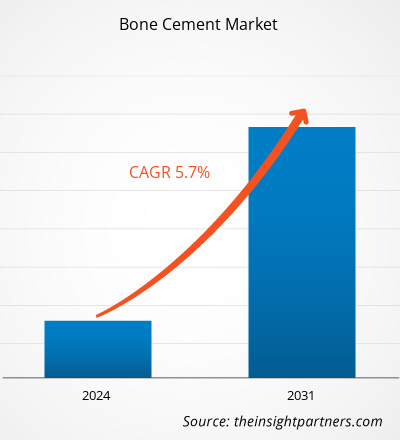骨水泥市场规模预计将从 2023 年的 12.3 亿美元增至 2031 年的 19.2 亿美元。预计 2023-2031 年期间市场复合年增长率为 5.70%。含抗生素骨水泥可能仍会是市场的一个主要趋势。
骨水泥市场分析
由于人们越来越关注开发具有卓越性能、高质量和安全性的骨水泥,例如用于关节置换和骨科关节固定的抗生素骨水泥,现有供应商之间的竞争将加剧。此外,由于椎体后凸成形术、关节成形术和椎体成形术等手术的接受度不断提高,市场正在扩大,这将大大促进市场增长。此外,由于对骨科骨水泥和铸造材料的需求不断增加,尤其是老年人,市场预计也会扩大。
骨水泥市场概况
骨质疏松症的高发率、对椎体后凸成形术、关节成形术和椎体成形术的需求不断增长以及老龄化人口的急剧增加都促进了市场的扩张。此外,这些公司还通过各种无机和有机发展计划促进了其增长。公司一直在使用各种有机策略来扩展业务,例如产品发布。企业已经使用了合作伙伴关系、合并和收购等无机策略。
定制此报告以满足您的需求
您可以免费定制任何报告,包括本报告的部分内容、国家级分析、Excel 数据包,以及为初创企业和大学提供优惠和折扣
- 获取此报告的关键市场趋势。这个免费样品将包括数据分析,从市场趋势到估计和预测。
骨水泥市场驱动因素和机遇
骨质疏松症患病率上升导致关节成形术、椎体后凸成形术和椎体成形术的增加,有利于市场增长
骨质疏松症会增加骨折的风险。近几年,骨质疏松症病例有所增加。例如,国际骨质疏松基金会表示,接受调查的女性中几乎有一半经历过与骨质疏松症相关的骨折,这使得这些骨折成为严重的健康问题,英国约有 400 万人患有骨质疏松症。
发展中地区的重大机遇
预计椎体后凸成形术、关节成形术和椎体成形术的增加将增加骨水泥的销量。知名行业参与者增强了制造能力并拓宽了分销网络,以提高其在发展中经济体的市场份额。对于重要的骨水泥生产商来说,韩国、墨西哥、巴西和印度等新兴市场预计将呈现增长前景。这些国家的人口老龄化、骨质疏松症患病率高、可支配收入增加、医疗保健系统改善以及医疗旅游业的扩张创造了有利可图的机会。亚太地区已发展成为一个灵活且适合经商的中心。随着美国和欧洲市场的成熟,大多数参与者都将注意力转向新兴市场。新兴国家最新技术的升级在很大程度上取决于对健康和生命科学研究的大量投资。这反过来又加强了使用骨水泥的倾向。kyphoplasty, arthroplasty, and
骨水泥市场报告细分分析
有助于得出骨水泥市场分析的关键部分是类型、应用和最终用户。
- 根据类型,骨水泥市场分为聚甲基丙烯酸甲酯 (PMMA) 水泥、磷酸钙水泥 (CPC) 和玻璃聚烯酸酯水泥 (GPC)。聚甲基丙烯酸甲酯 (PMMA) 水泥部分在 2023 年占据了最大的市场份额。polymethyl methacrylate (PMMA) cement, calcium phosphate cement (CPC), and glass polyalkenoate cement (GPC). The polymethyl methacrylate (PMMA) cement segment held the most significant market share in 2023.
- 根据应用,市场分为关节成形术、椎体后凸成形术和椎体成形术。关节成形术领域在 2023 年占据了最大的市场份额。arthroplasty, kyphoplasty, and vertebroplasty. The arthroplasty segment held the largest share of the market in 2023.
- 根据最终用户,市场分为医院、门诊手术中心 (ASCS) 和诊所。医院部门在 2023 年占据了最大的市场份额。ASCS), and clinics. The hospitals segment held the largest share of the market in 2023.
骨水泥市场份额按地区分析
骨水泥市场报告的地理范围主要分为五个区域:北美、亚太、欧洲、中东和非洲、南美和中美。
美国骨水泥市场在北美国家中占有最大份额。骨质疏松症发病率的上升是推动该市场扩张的主要因素。近年来,据报道,许多旨在扩大美国骨水泥市场的合作伙伴关系和合资企业纷纷成立。例如,美敦力脊柱和生物制剂业务的下属部门 Kyphon 产品部通过向美国市场推出含羟基磷灰石的 KYPHON ActivOs 10 骨水泥取得了重大里程碑。随着这款产品的推出,美敦力的骨水泥产品组合现在为外科医生提供了治疗脊椎压缩性骨折 (VCF) 患者的另一种选择。因此,美国最近推出的骨水泥市场可能会有助于该国的增长。
许多加拿大企业正在实施各种方法来扩大骨水泥行业。市场参与者实施了各种可持续战略,包括产品发布、地域扩张、并购和战略合作。例如,史赛克推出了单工骨水泥,用于固定各种骨科和创伤手术中的植入物。
骨水泥市场区域洞察
Insight Partners 的分析师已详细解释了预测期内影响骨水泥市场的区域趋势和因素。本节还讨论了北美、欧洲、亚太地区、中东和非洲以及南美和中美洲的骨水泥市场细分和地理位置。

- 获取骨水泥市场的区域特定数据
骨水泥市场报告范围
| 报告属性 | 细节 |
|---|---|
| 2023 年的市场规模 | 12.3亿美元 |
| 2031 年市场规模 | 19.2亿美元 |
| 全球复合年增长率(2023 - 2031) | 5.70% |
| 史料 | 2021-2022 |
| 预测期 | 2024-2031 |
| 涵盖的领域 | 按类型
|
| 覆盖地区和国家 | 北美
|
| 市场领导者和主要公司简介 |
|
市场参与者密度:了解其对商业动态的影响
骨水泥市场正在快速增长,这得益于终端用户需求的不断增长,而这些需求又源于消费者偏好的不断变化、技术进步以及对产品优势的认识不断提高等因素。随着需求的增加,企业正在扩大其产品范围,进行创新以满足消费者的需求,并利用新兴趋势,从而进一步推动市场增长。
市场参与者密度是指在特定市场或行业内运营的企业或公司的分布情况。它表明在给定市场空间中,相对于其规模或总市场价值,有多少竞争对手(市场参与者)存在。
在骨水泥市场运营的主要公司有:
- 齐默邦美
- 德普合成公司
- 施乐辉
- DJO 全球公司
- Arthrex 公司
免责声明:上面列出的公司没有按照任何特定顺序排列。

- 了解骨水泥市场顶级关键参与者概况
骨水泥市场新闻及最新发展
骨水泥市场的评估是通过收集一手和二手研究后的定性和定量数据进行的,其中包括重要的公司出版物、协会数据和数据库。骨水泥市场的一些发展情况如下:
- OsteoRemedies(R) LLC 是一家专注于为复杂疾病提供简单解决方案的骨科公司,该公司宣布 FDA 批准扩大 SPECTRUM(R) GV 骨水泥的适应症。扩大的适应症涵盖髋关节置换术部件的固定,在初始感染清除后,在两阶段修复的第二阶段植入。(来源:OsteoRemedies(R) LLC,新闻稿,2024 年 4 月)
- Zimmer Biomet 赢得了美国国际贸易委员会的一项诉讼,该诉讼中该公司被指控窃取 Heraeus 骨水泥的商业机密,骨水泥是一种用于填补人工关节和骨骼之间缝隙的化合物。该委员会拒绝了 Heraeus Holding 要求阻止进口法国生产的 Refobacin 骨水泥的请求,该骨水泥与 Heraeus 的 PALACOS 产品存在竞争。(来源:Zimmer Biomet,新闻稿,2021 年 1 月)
骨水泥市场报告范围和交付成果
“骨水泥市场规模和预测(2021-2031)”报告对以下领域进行了详细的市场分析:
- 骨水泥市场规模及全球、区域和国家层面所有主要细分市场的预测
- 骨水泥市场趋势以及市场动态,如驱动因素、限制因素和关键机遇
- 详细的 PEST/波特五力分析和 SWOT 分析
- 骨水泥市场分析涵盖主要市场趋势、全球和区域框架、主要参与者、法规和最新的市场发展。
- 行业格局和竞争分析,涵盖市场集中度、热图分析、知名参与者以及骨水泥市场的最新发展
- 详细的公司简介
- 历史分析(2 年)、基准年、预测(7 年)及复合年增长率
- PEST 和 SWOT 分析
- 市场规模价值/数量 - 全球、区域、国家
- 行业和竞争格局
- Excel 数据集


- Tortilla Market
- Authentication and Brand Protection Market
- Green Hydrogen Market
- Nuclear Decommissioning Services Market
- Molecular Diagnostics Market
- Organoids Market
- Water Pipeline Leak Detection System Market
- Emergency Department Information System (EDIS) Market
- Sweet Potato Market
- Third Party Logistics Market

Report Coverage
Revenue forecast, Company Analysis, Industry landscape, Growth factors, and Trends

Segment Covered
This text is related
to segments covered.

Regional Scope
North America, Europe, Asia Pacific, Middle East & Africa, South & Central America

Country Scope
This text is related
to country scope.
常见问题
North America dominated the bone cement market in 2023
Key factors driving the market are the rising prevalence of osteoporosis, which leads to an increase in arthroplasty, kyphoplasty, and vertebroplasty procedures and growing demand for arthroplasty procedures.
Growing emphasis on adopting novel drug delivery systems is likely to remain a key trend in the market.
Zimmer Biomet, DePuy Synthes, Smith & Nephew, DJO Global, Inc, Arthrex, Inc, Tecres S.p.A, Heraeus Holding GmbH, Cardinal Health Inc., Teknimed, Stryker Corporation
The market is expected to register a CAGR of 5.7% during 2023–2031.
Trends and growth analysis reports related to Life Sciences : READ MORE..
The Insight Partners performs research in 4 major stages: Data Collection & Secondary Research, Primary Research, Data Analysis and Data Triangulation & Final Review.
- Data Collection and Secondary Research:
As a market research and consulting firm operating from a decade, we have published and advised several client across the globe. First step for any study will start with an assessment of currently available data and insights from existing reports. Further, historical and current market information is collected from Investor Presentations, Annual Reports, SEC Filings, etc., and other information related to company’s performance and market positioning are gathered from Paid Databases (Factiva, Hoovers, and Reuters) and various other publications available in public domain.
Several associations trade associates, technical forums, institutes, societies and organization are accessed to gain technical as well as market related insights through their publications such as research papers, blogs and press releases related to the studies are referred to get cues about the market. Further, white papers, journals, magazines, and other news articles published in last 3 years are scrutinized and analyzed to understand the current market trends.
- Primary Research:
The primarily interview analysis comprise of data obtained from industry participants interview and answers to survey questions gathered by in-house primary team.
For primary research, interviews are conducted with industry experts/CEOs/Marketing Managers/VPs/Subject Matter Experts from both demand and supply side to get a 360-degree view of the market. The primary team conducts several interviews based on the complexity of the markets to understand the various market trends and dynamics which makes research more credible and precise.
A typical research interview fulfils the following functions:
- Provides first-hand information on the market size, market trends, growth trends, competitive landscape, and outlook
- Validates and strengthens in-house secondary research findings
- Develops the analysis team’s expertise and market understanding
Primary research involves email interactions and telephone interviews for each market, category, segment, and sub-segment across geographies. The participants who typically take part in such a process include, but are not limited to:
- Industry participants: VPs, business development managers, market intelligence managers and national sales managers
- Outside experts: Valuation experts, research analysts and key opinion leaders specializing in the electronics and semiconductor industry.
Below is the breakup of our primary respondents by company, designation, and region:

Once we receive the confirmation from primary research sources or primary respondents, we finalize the base year market estimation and forecast the data as per the macroeconomic and microeconomic factors assessed during data collection.
- Data Analysis:
Once data is validated through both secondary as well as primary respondents, we finalize the market estimations by hypothesis formulation and factor analysis at regional and country level.
- Macro-Economic Factor Analysis:
We analyse macroeconomic indicators such the gross domestic product (GDP), increase in the demand for goods and services across industries, technological advancement, regional economic growth, governmental policies, the influence of COVID-19, PEST analysis, and other aspects. This analysis aids in setting benchmarks for various nations/regions and approximating market splits. Additionally, the general trend of the aforementioned components aid in determining the market's development possibilities.
- Country Level Data:
Various factors that are especially aligned to the country are taken into account to determine the market size for a certain area and country, including the presence of vendors, such as headquarters and offices, the country's GDP, demand patterns, and industry growth. To comprehend the market dynamics for the nation, a number of growth variables, inhibitors, application areas, and current market trends are researched. The aforementioned elements aid in determining the country's overall market's growth potential.
- Company Profile:
The “Table of Contents” is formulated by listing and analyzing more than 25 - 30 companies operating in the market ecosystem across geographies. However, we profile only 10 companies as a standard practice in our syndicate reports. These 10 companies comprise leading, emerging, and regional players. Nonetheless, our analysis is not restricted to the 10 listed companies, we also analyze other companies present in the market to develop a holistic view and understand the prevailing trends. The “Company Profiles” section in the report covers key facts, business description, products & services, financial information, SWOT analysis, and key developments. The financial information presented is extracted from the annual reports and official documents of the publicly listed companies. Upon collecting the information for the sections of respective companies, we verify them via various primary sources and then compile the data in respective company profiles. The company level information helps us in deriving the base number as well as in forecasting the market size.
- Developing Base Number:
Aggregation of sales statistics (2020-2022) and macro-economic factor, and other secondary and primary research insights are utilized to arrive at base number and related market shares for 2022. The data gaps are identified in this step and relevant market data is analyzed, collected from paid primary interviews or databases. On finalizing the base year market size, forecasts are developed on the basis of macro-economic, industry and market growth factors and company level analysis.
- Data Triangulation and Final Review:
The market findings and base year market size calculations are validated from supply as well as demand side. Demand side validations are based on macro-economic factor analysis and benchmarks for respective regions and countries. In case of supply side validations, revenues of major companies are estimated (in case not available) based on industry benchmark, approximate number of employees, product portfolio, and primary interviews revenues are gathered. Further revenue from target product/service segment is assessed to avoid overshooting of market statistics. In case of heavy deviations between supply and demand side values, all thes steps are repeated to achieve synchronization.
We follow an iterative model, wherein we share our research findings with Subject Matter Experts (SME’s) and Key Opinion Leaders (KOLs) until consensus view of the market is not formulated – this model negates any drastic deviation in the opinions of experts. Only validated and universally acceptable research findings are quoted in our reports.
We have important check points that we use to validate our research findings – which we call – data triangulation, where we validate the information, we generate from secondary sources with primary interviews and then we re-validate with our internal data bases and Subject matter experts. This comprehensive model enables us to deliver high quality, reliable data in shortest possible time.


 获取此报告的免费样本
获取此报告的免费样本